Community
Copyright@ Australian Catholic University 1998-2026 | ABN 15 050 192 660 CRICOS registered provider: 00004G | PRV12008
Copyright@ Australian Catholic University 1998-2026 | ABN 15 050 192 660 CRICOS registered provider: 00004G | PRV12008
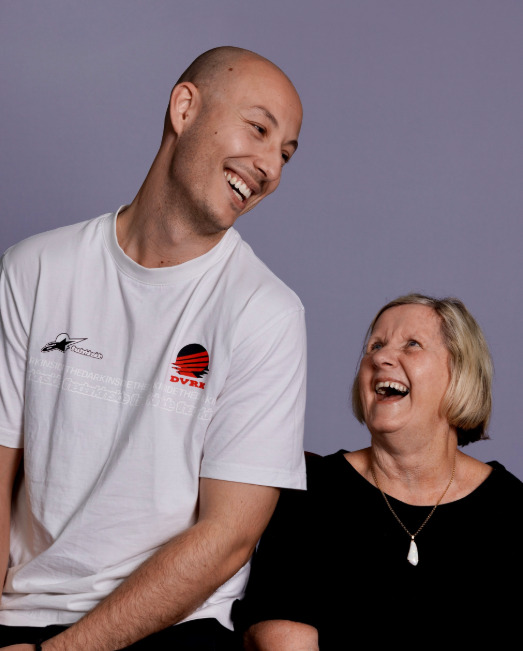
Put yourself in the shoes of a Vietnam war widow. Your husband was one of more than 60,000 Australians to serve in combat against the Vietcong between 1962 and 1973, returning home to a less than welcoming environment, as veterans were widely shunned and mistreated.
Alongside the grief and emotional stress of losing your spouse, perhaps through prolonged PTSD and premature death, you have struggled to be acknowledged and to have your needs addressed.
“Through my research with the widows of Vietnam veterans, one thing that’s come up really strongly is the societal stigma associated with this conflict,” says Jo-anne Walker, a PhD candidate with ACU’s Institute for Humanities and Social Sciences.
“There’s been a lack of recognition of their sacrifice, and in some cases, they even suffered abuse related to their husband’s military service. They’ve felt alone in their experiences, suffering in silence due to a lack of understanding and support, with their needs not being met and their voices overlooked.”
In 2023, having completed her Bachelor of Arts/Bachelor of Global Studies with honours at ACU’s Brisbane Campus, Jo-anne embarked upon a research project in partnership with the Legacy Club of Brisbane, a non-profit organisation that provides support to the families of Australian veterans. Her aim is to determine whether intergenerational interaction – activities designed to bring younger and older people together for mutual benefit – can improve the wellbeing of war widows.
“We want to investigate if these activities can be of benefit to a segment of the population that has in many cases been neglected and forgotten,” says Jo-anne, whose PhD is supervised by Dr Jonathan Smith and Dr Jacqueline Laughland-Booÿ from ACU’s National Centre for Veterans and Families.
She notes that previous research, most notably the work of ACU’s Professor Joy Damousi, has explored the experiences of Australian war widows; however, studies examining the impact of intergenerational interaction on the wellbeing of these women remain scarce.
Jo-anne’s work is aimed at filling that gap. Since the project’s inception, she’s been busy developing, piloting, and evaluating an intergenerational program involving 11 women supported by Legacy’s older widow program, and 11 ACU students taking part in community engagement activities.
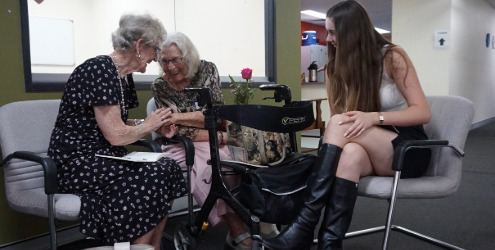
The experience has given her unique insight into the plight of Australia’s war widows.
“Before this, I had no connection with military life and knew very little about Vietnam veterans and their families,” says Jo-anne, a former music teacher who returned to university study in her 50s.
“Their stories have largely gone untold, and partly because of that, many of them still grapple with feelings of isolation and loneliness. You wouldn’t know it when you first meet them, because they’ve developed this attitude of just getting on with life. But when you dig a little deeper, the scars of the past reveal themselves.”
Five weeks into the 10-week intergenerational program, after various icebreakers and warm-up activities, the 22 participants gathered at Legacy House to discuss the Vietnam War.
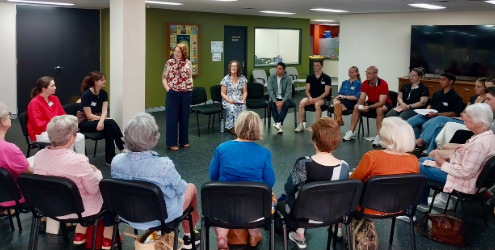
“That was a tough one,” Jo-anne recalls, noting that the students helped to design and facilitate the week’s activities. “They ran a timeline activity and talked about historical events surrounding the war, then asking the women to discuss their memories of each of those events. This sparked a deep conversation that was very difficult for some.”
Reflecting on the experience, one student remarked on “how brave all these ladies are … because they’ve obviously had some traumatic times and experiences”, while another declared that “resilience looks different on everybody … it’s put my whole life into perspective”.
The students were “clearly moved by the stories they heard”, Jo-anne says, describing the activity as “a special time of connection and acknowledgement of the widows”.
“It was powerful for the widows to share their stories, especially in light of the lingering stigma associated with the Vietnam War,” she says.
“These students had no judgments about the war and no sense of its impact, so they really took an interest in listening and asking questions, and this allowed for discussions that fostered a connection between the widows and the students, as they developed a partnership based on understanding and trust.”
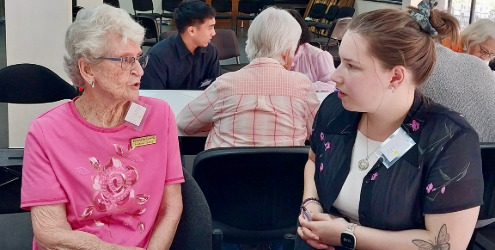
Weeks earlier, at the beginning of the program, some of the older participants had their doubts.
“There was one widow who would say to me over and over, ‘I can’t see how this will work … these young people are always on their phones’, but within a few weeks, she had totally transformed and enjoyed every minute. Others said they felt valued and wanted, and that the interactions with young people gave them a sense of purpose and hope.”
A week after the Vietnam War discussion, participants engaged in an activity called ‘message in a bottle’, where the students assigned a ‘superpower word’ to each widow, and vice versa. At end of the activity, all 22 participants received a bottle full of words representing the special strengths other participants saw in them.
“The idea of this activity, and the whole program, was to promote self-worth and confidence in the widows,” says Jo-anne, pointing out that while intergenerational programs are known to reduce social isolation and loneliness in older participants, little is known about whether these positive effects are sustained in the long term.
“We looked for ways to build an internal psychological resource within the women, allowing the positive effects to last beyond the conclusion of the program, when their lives go back to normal.”
While Jo-anne Walker’s research is focused on the wellbeing of older war widows, intergenerational programs are also known to be of benefit to younger participants, who often gain new knowledge, learn new skills, and form identity through such activities.
“They were really pushed out of their comfort zones,” says Jo-anne of the students, who were mostly occupational therapy undergraduates. “It forced them to learn to engage and converse with these older people, to challenge their attitudes and preconceptions.”
In a series of interviews after the program’s completion, students talked of the value of meeting the older women.
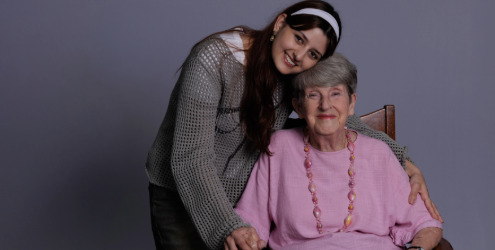
“Some of [the war widows] are absolutely hilarious and some are really serious,” one student remarked, “but just getting to know all of them has been a really great experience.”
Another described the connection she made with one widow in as “really lovely”.
“Hearing her stories, she’s got a great sense of humour and we laughed heaps.”
While the main goal of Jo-anne’s research is to provide empirical evidence that intergenerational programs improve the wellbeing of older war widows, she would also like to play an advocacy role, arguing for tailored support services that address the distinct needs of this cohort.
In future, she hopes that the Legacy program can be reproduced in other states where ACU has campuses, bringing many more students and war widows together.
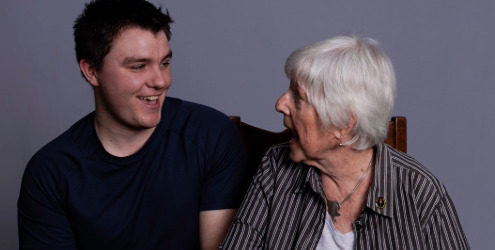
“It’s such a meaningful way for students to engage with the community, bridging generations and giving young people the opportunity to step into somebody else’s shoes,” she says.
“There is such value in viewing life from the perspective of those who have experienced something difficult and challenging … it can help you to see your own life differently, with a bit more gratitude and a bit more empathy.”
Keen to make a difference in the community through a research degree at ACU? Explore the options.
Learn more about the National Centre for Veterans and Families, and the work ACU does to empower veterans through higher education.
Copyright@ Australian Catholic University 1998-2026 | ABN 15 050 192 660 CRICOS registered provider: 00004G | PRV12008